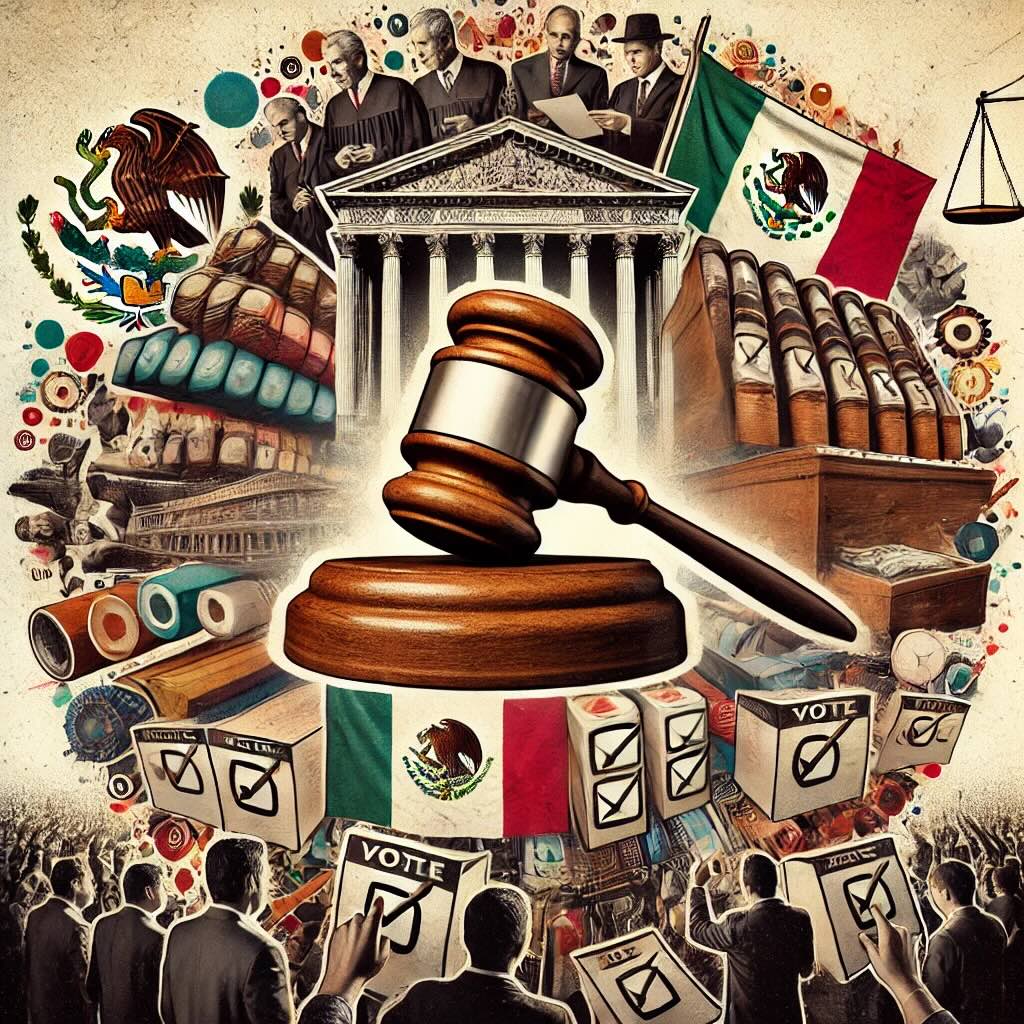President Andrés Manuel López Obrador’s (AMLO) proposed judicial reform in Mexico has sparked significant controversy. The primary aim is to reshape the country’s legal system by increasing transparency, efficiency, and democratic accountability. However, the most radical proposal—popular election of judges—has raised concerns about potential risks to judicial independence and the overall functioning of the justice system
Key Provisions of the Judicial Reform
- Popular Election of Judges: One of the most radical proposals is to allow citizens to directly elect Supreme Court justices, magistrates, and judges, an uncommon arrangement in Latin America, where judges tend to be appointed. This move is intended to make the judiciary more responsive to the people’s needs. However, critics argue that it could politicize the judiciary and compromise judicial independence.
- Reduced Supreme Court: The size of the Supreme Court would be reduced from 11 to 9 justices, and their term limits would be shortened.
- Elimination of Life Pensions: To promote austerity and reduce government spending, the life pension for Supreme Court justices would be abolished.
- New Judicial Oversight Body: A new judicial administration body would be created to oversee the judiciary and ensure accountability.
- Streamlined Procedures: The reform aims to expedite legal proceedings and reduce case backlogs.
Objectives and Controversies
The stated objectives of the judicial reform include:
- Increased transparency and efficiency: By making the judiciary more accountable to the public and streamlining procedures, the reforms aim to improve the overall functioning of the justice system.
- Enhanced democratic legitimacy: Popular election of judges is seen as a way to increase public trust in the judiciary.
- Cost reduction: By eliminating life pensions and reducing the size of the Supreme Court, the government aims to save money.
However, these reforms have faced significant opposition. Critics argue that:
- Judicial independence may be compromised: Popular election could lead to judges being influenced by political considerations rather than the law.
- Experienced judges may be lost: The elimination of life pensions could discourage talented individuals from pursuing a career in the judiciary. There are also concerns about the minimal qualifications required to be a judge under the proposed changes.
- Unintended consequences: The rapid pace of these reforms could lead to unintended consequences and disrupt the functioning of the justice system.
Impact on the Legal System
The proposed judicial reform has already had a significant impact on Mexico’s legal system. A nationwide work stoppage by federal judges has brought many courts to a standstill, disrupting legal proceedings and raising concerns about access to justice.
Conclusion
While Mexico’s judicial reform aims to increase transparency, efficiency, and democratic accountability, it has also raised concerns about over judicial independence and the overall functioning of the justice system. The most controversial aspect of the reform is the proposal to allow popular election of judges. While this could enhance public trust in the judiciary, it also carries the risk of politicizing the bench and compromising judicial independence. In any case, the election of judges in Mexico would be a novel development for the region, potentially setting a precedent for other Latin American countries.
The nationwide work stoppage by federal judges in response to the proposed reforms highlights the significant disruptions that could result from these changes. The potential impact on litigants is particularly concerning, as delays in legal proceedings could have far-reaching consequences.
Thank you to the lawyers at Rivadeneyra Treviño (our affiliated law firm in Mexico) for their informative update on the subject.
























